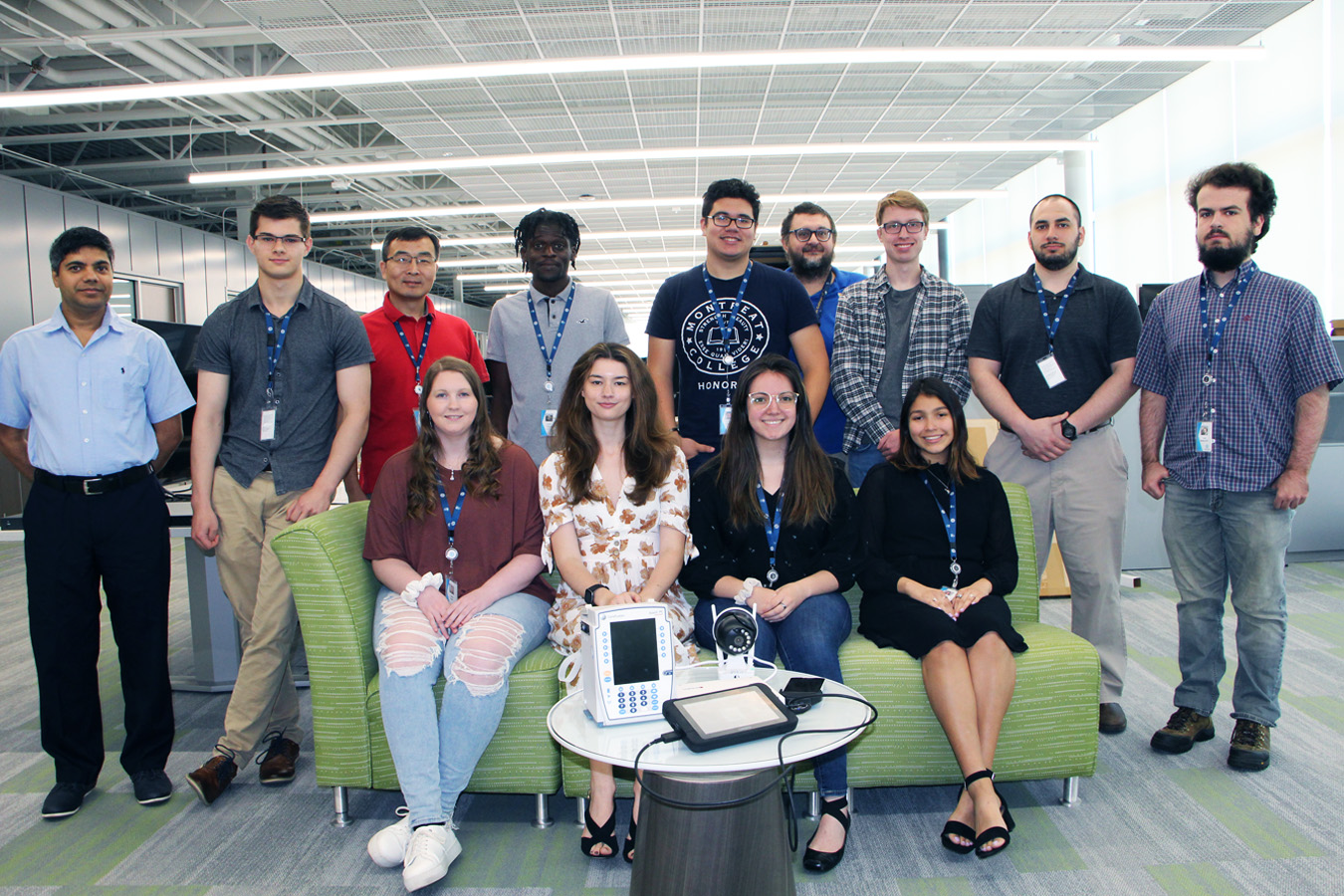Undergrads research security of hospital devices
July 28, 2022
Patient care is a top priority for hospitals, and part of this involves the security of the medical devices used in those facilities.
As more and more medical devices connect to each other in hospitals, there is a focus on the security aspects of these devices, which are referred to as Internet of Medical Things, or IOMT devices.
“It’s mission-critical” to keep these medical devices secure because of the impact they can have on human life, said Dr. Bhaskar Rimal, Assistant Professor in Dakota State’s Beacom College of Computer and Cyber Sciences.
To support security with IOMT devices, he and several colleagues are working with 10 undergraduate students from across the country. This is part of the National Science Foundation Research Experience for Undergraduate (REU) program grant the university received in 2019. Sanford Health is also partnering on the project. The project’s principal investigator is Dr. Yong Wang, professor in The Beacom College.

The students come from institutions in seven different states, representing a wide variety of backgrounds and programs. Instructor Rob Richardson said, “that’s good because they can look at the problems from different angles, all unique to their past experience.” To provide common ground, the students meet with faculty twice weekly to cover the concepts they need to understand and the tools they will use.
Through this REU, students learn new skills and can try new tools, said Alexandra Lee, a senior from Tennessee Technological University.
Riley Basaran, a cyber security major from the University of Wisconsin-Platteville, said it’s worthwhile building these skills. “It’s good to be able to say what I did and what I’m familiar with and put that on a résumé.”
This is also an opportunity to explore new career options.
Charles Fofie, Jr., from Minot State University, is learning about various cyber security aspects which will help him find a focus regarding a career direction. Korina Alcantara, a computer information systems major from Texas A&M University-San Antonio, participated in an REU completing a water social conservation survey last summer, but “this IOMT research is a whole new field with cyber security,” she said.
Not all skills learned are technical; the importance of reading is essential for the students. Alexandra Smith, a DSU student, participated in an REU last summer, “and I knew I wanted to do this again, even with all the reading,” she stated. Reading with this project included technical manuals, FDA and HIPAA regulations, and legislation.
Students are also researching device regulations for international groups such as the European Union, and are finding some overlap.
“It’s interesting how it’s all interconnected, how it’s more of a circle of connectedness versus a tree,” she said.
Another non-technical skill is presentation skills, which is good practice, said Fofie, because on July 28 they will present at the SD EPSCoR Undergraduate Research Symposium in Brookings.
Kasey Sager knows this is an important skill because “everyone needs good presentation and oral skills.” She is from the University of Alabama in Huntsville.
Kai Taylor, from Montreat College, agreed because “many times you will be doing presentations for your team or the company.”
But the driving force behind the research is improving patient care. Adam Zimmel, a network and security administration major from Dakota State, said, “There is a lot more going on with such a simple medical device than people might think.” Taylor said the opportunity to help patients by increasing security in these devices is a driving factor. “For me, that’s definitely a huge motivation.”
The students’ career plans are open-ended, because “Artificial Intelligence is a very big field and a lot is changing,” said Alexandra Smith, from DSU. “There could be several new options by the time I graduate.”
But all recommend these types of careers because “cyber security is a growing field,” said Alcantara, “especially as more things connect to the internet.”
